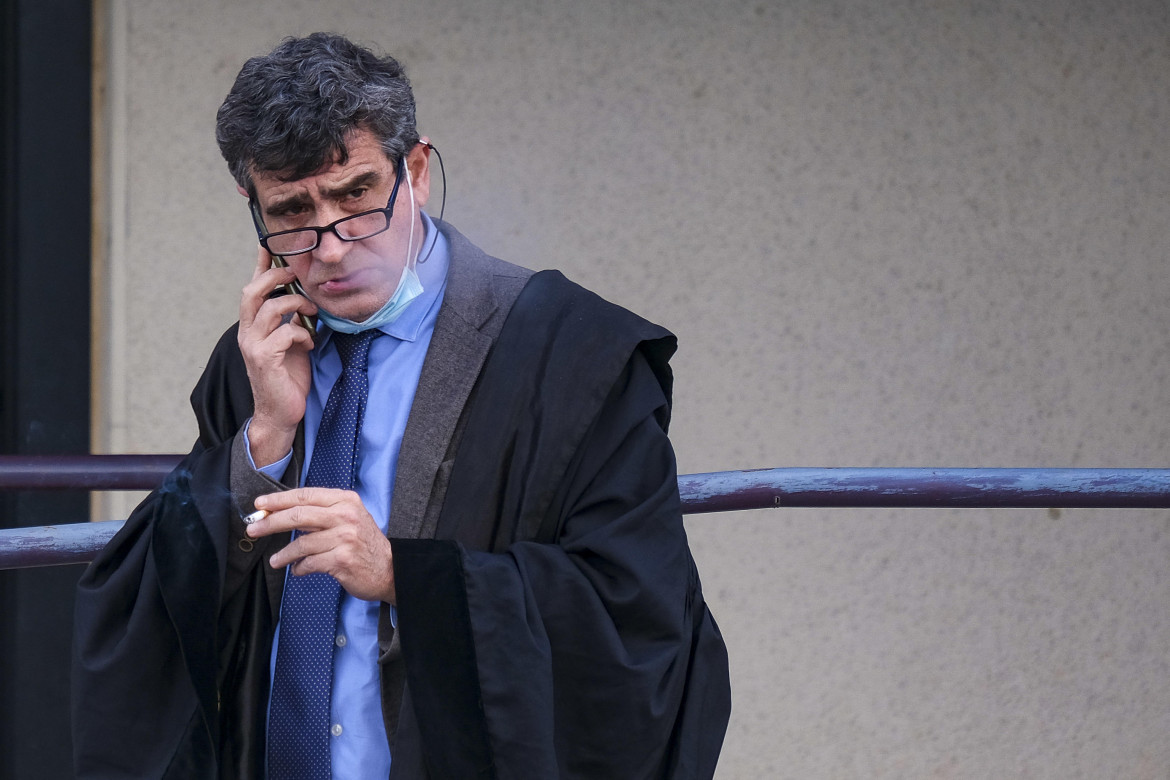Interview
Open Arms attorney: Salvini delays migrant rescue until the moment of ‘imminent danger’
Since at least 2016, authorities have been increasingly tightening the lid on what happens at sea. Those who know don’t speak out for fear of retaliation.

In addition to being the world’s largest graveyard, the Mediterranean has also become a “black hole” for information in recent years. Since at least 2016, authorities have been increasingly tightening the lid on what happens at sea. Those who know don’t speak out for fear of retaliation. This is why the trials on shipwrecks and those against NGOs are opportunities to understand procedures and decision chains in the rescue system.
Attorney Arturo Salerni has been part of two of the most important court cases in this area: the Open Arms case against the former Interior Minister and current Minister of Infrastructure, Matteo Salvini; and the one on the October 11, 2013 “massacre of children,” against a Navy officer and a Coast Guard officer. In the former trial, he was defending the NGO; in the latter, he was the counsel for the civil parties.
Is it true that in the Salvini trial, just like with the Steccato di Cutro shipwreck right now, how to classify a search and rescue (SAR) event is at issue?
Yes. We and the Palermo prosecutor’s office argue that a SAR event starts as soon as a vessel in distress is sighted. That means any vessel that is unstable, overcrowded, sailing in difficult sea conditions. Salvini’s defense, on the other hand, is trying to shift the beginning of the SAR event to the moment of distress, that is, imminent danger. But this is an interpretation that has no basis under the normative aspects of the SAR convention and its implementing rules. Not least because it clashes with its logic: one must act to avoid a shipwreck, not get involved only when it has already happened.
During the hearings, Open Arms was accused of carrying out a rescue without the boat being in danger.
An Interior Ministry witness disclosed that there had been a submarine filming the first rescue operation of the ship. The prosecution appointed consultants to determine whether this was in a dangerous situation. Their response was that a boat like that one, overloaded with people, would not have been allowed to leave from any Italian port. So yes, it was in danger even if the shipwreck was not imminent. That’s why, as a defense team, we denounced the crew of the submarine: they should have intervened instead of stopping to make videos and waiting for rescuers to arrive. At sea, the protection of human life must take precedence over all other considerations. In our opinion, that was a refusal to render aid.
Let’s go back to the October 11, 2013 shipwreck that claimed nearly 300 lives, including many children. Back then, the blame-shifting was between the Italian Navy and Coast Guard and the Maltese authorities. In the ruling, the judge spoke of “reckless inaction” and “culpable wait-and-see.”
The problem in that case was that the two SAR authorities involved, Italian and Maltese, had a duty to cooperate in an open manner. But Valletta, which had taken up the coordination role, was not given all the information. For example, the fact that the Italian military ship Libra was close to the boat was concealed from them. The judge ruled that he could not convict due to the expiration of the statute of limitations, but also that he could not acquit, because there was all the evidence which showed the responsibilities – namely, competing responsibilities between the Navy and the Coast Guard. These were events that belonged to a different era, before Mare Nostrum, which was set up right after that massacre; however, it was clearly established that all rescue instruments must be activated.
Was it easy to ascertain the institutional responsibilities in that case?
It’s never easy. In fact, in that case the statute of limitations expired because the prosecution did not want to hold the trial. They asked for a dismissal twice, and we had to fight it both times. In the end, the judges ordered the indictment to be compulsory. We didn’t manage to do it all in time for a conviction, but at least we were able to get a ruling ascertaining the responsibilities, in writing, as part of the motivations for the judge’s decision. A conviction would have generated more attention, and perhaps more fear of being found guilty among those involved in these operations.
Instead, now, 10 years later, we seem to be looking at a new case of passing the responsibility back and forth, this time between institutions of the Italian state.
Yes, but the individual operators who are part of the chain of command and might omit to do something they have a duty to do should be aware that, regardless of any instructions they might get from the political sphere, they are putting themselves at risk personally – on the level of criminal charges, asset forfeiture and financial damages. They should understand that it is always in their interest to intervene, because governments come and go but individual responsibilities remain.
Originally published at https://ilmanifesto.it/lavvocato-salerni-sento-la-stessa-difesa-che-usa-salvini-ma-stavolta-il-naufragio-e-una-strage on 2023-03-03
